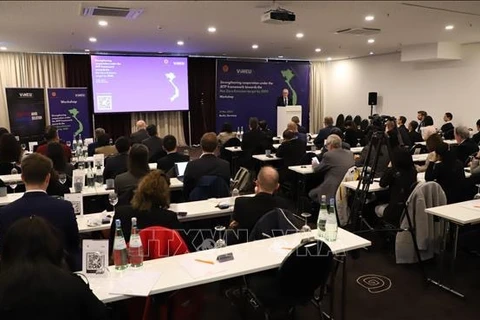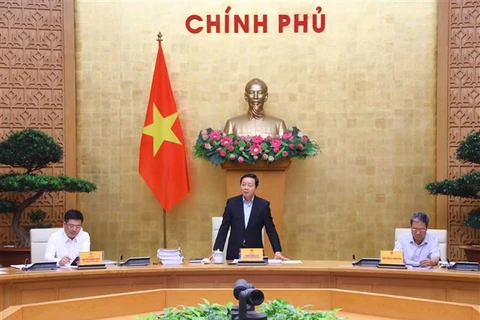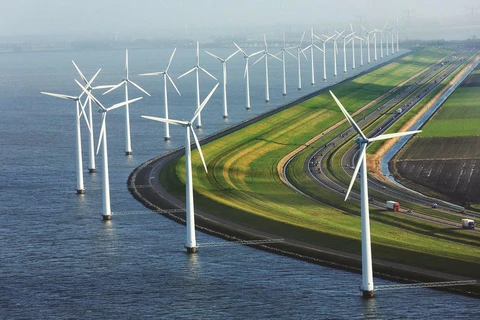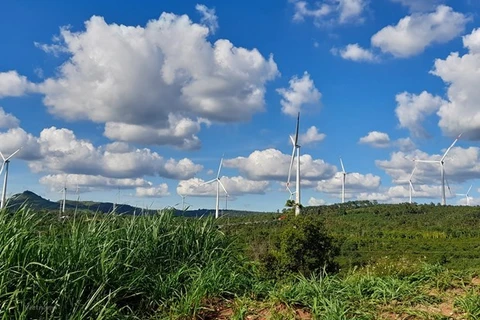 The plan aims to successfully implement the JETP Declaration in combination with promoting the development of renewable energy. - Illustrative image (Photo: https://baochinhphu.vn/)
The plan aims to successfully implement the JETP Declaration in combination with promoting the development of renewable energy. - Illustrative image (Photo: https://baochinhphu.vn/) The plan aims to successfully implement the JETP Declaration in combination with promoting the development of renewable energy, and the economical and efficient use of energy, contributing to realising net zero greenhouse gas emission targets by 2050; developing the energy industry with synchronous and smart infrastructure on the basis of ensuring national energy security and development goals, and ensuring fairness in energy transition.
It also mentions the reception and effective use of support from international partners in technology transfer, governance, human resource training and financial provision for the implementation of the declaration, contributing to implementing Vietnam’s national energy development strategy and the Global Coal to Clean Power Transition statement.
From now to 2030, the plan states that it is necessary to build and perfect the legal framework to facilitate the attraction of investors, businesses and people to engage in the just energy transition process and promote technology transfer.
Under the plan, relevant units will develop a resource mobilisation plan to implement the JETP Declaration, and carry out pilot projects related to just energy transition; while at the same time implementing the resource mobilisation plan with international financial support and technology transfer to promote the conversion of coal-fired power and fossil energy to clean energy, and develop renewable and new energy forms (green hydrogen, green ammonia).
The plan also mentions the need to upgrade and develop smart, advanced and modern infrastructure facilities for production, transmission, storage, distribution and management of electricity, which are capable of large-scale integration of renewable energy sources; intensify electrification and develop human resources to gradually master modern technology, towards producing equipment serving the development of renewable energy, and improving the management capacity of the energy industry.
The conversion from coal-fired power plants to clean energy sources is one of the key tasks specified by the plan, along with developing an eco-system for renewable energy industry and services, promoting the generation of electricity from biomass, garbage and solid waste to utilise agricultural and forestry by-products, building and implementing regulations on the rate of renewable energy for electricity distribution organisations, and a renewable energy credit market./.
VNA























